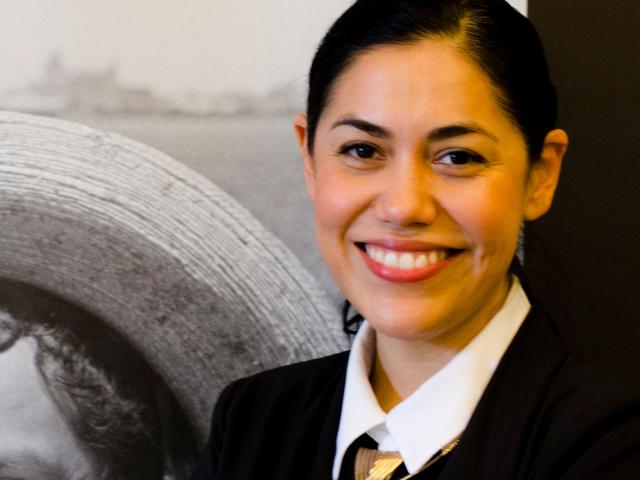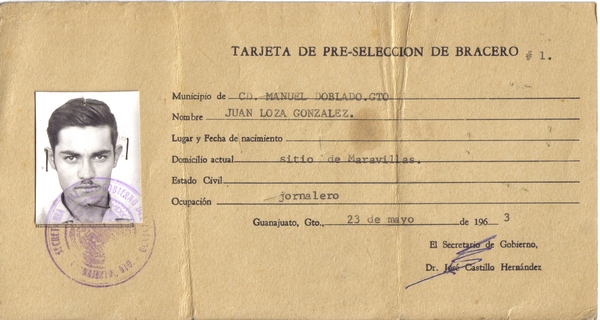As an undergraduate student, Dr. Mireya Loza, Associate Professor of History at Georgetown University, wrote a paper about her Uncle Juan, a guest worker from Mexico who worked in the fields in California, Michigan and other places in the U.S.
“I grew up in Chicago, but my family is from a small agricultural town, a village actually, in Mexico,” she said. “The most fun time in my childhood was going from Chicago to Mexico to my dad's village; running around corn and soy fields and feeling freer than I felt in the inner city.”
Some of her family members, including her uncle, were recruited as guest workers. “When I was an undergrad I began to do more research on my family’s immigration story,” she said.
What began as an undergrad research paper, eventually led to her earning a PhD in American Studies at Brown University. Before joining the faculty at Georgetown, Loza was a curator at the Smithsonian Institution’s National Museum of American History. Much of her research focused on the Bracero Program (1942–1964), a binational agreement between the United States and Mexico that allowed over 4.5 million Mexican workers to enter this country on temporary work permits. While the Bracero Program has ended, Mexican guest workers continue to labor in the US through the H2 visa program.
As part of that work, she personally conducted over 100 oral histories in the US and Mexico with farm workers, including her uncle, who entered the US as a contracted guestworker. “Many scholars hadn't had this incredible opportunity that I had been given, which is to create history really from the bottom up, led by the community, with the community sort of teaching me,” she said.
Loza is one of 28 members appointed to USDA’s Equity Commission in February 2022. Each commission and subcommittee member, who serve two-year appointments, brings a specialized understanding of their individual field and professional niche. Working together, the commission and its subcommittees will evaluate USDA programs and services and recommend how USDA can reduce barriers for accessing them by implementing transformative changes.
She said one of the biggest strengths of the Equity Commission is the group’s combined experiences in agriculture, teaching and policy. “I have gotten a front row seat to a lot of talent. It's just been a joy to learn from others,” she said.
Loza said the Agriculture industry can teach us a lot about race, class, gender and civil rights.
“Guest workers are perpetual outsiders, they come in quietly. They work, they labor, they feed us, and then they quietly disappear. And I can't imagine living in a system where I give a country all of my labor, but they never give me belonging,” she said. “We should not be creating a system in which guest workers are exploited and exploitable, and we're basically justifying it by saying, well, they're feeding their families.”
For Loza, an equitable system would provide every worker an opportunity to showcase all of their skills while living in dignity with access to the things that they need on an everyday basis. “If the viable solution for labor shortage is the exploitation of someone else, then that is not an equitable solution,” she said.


